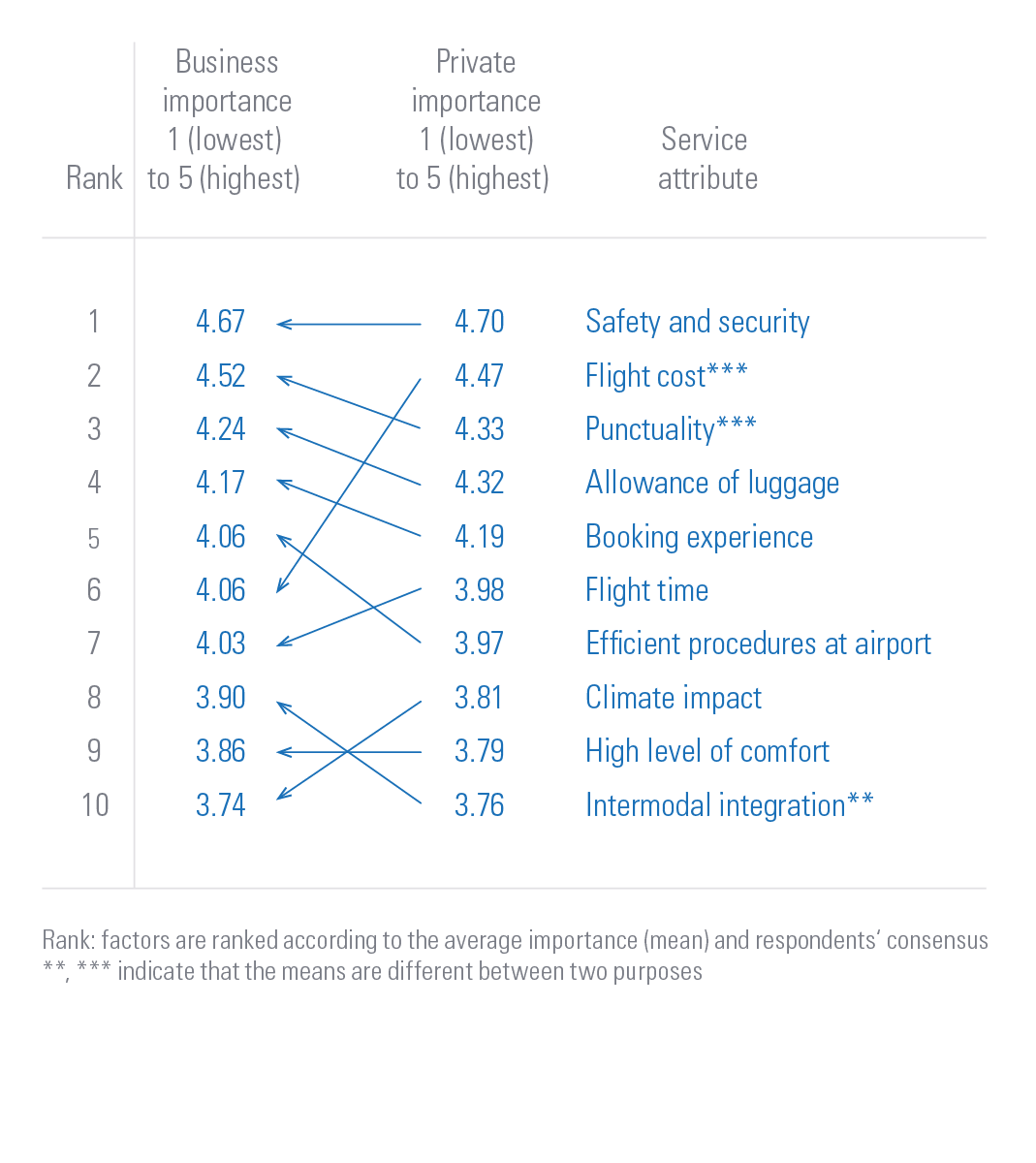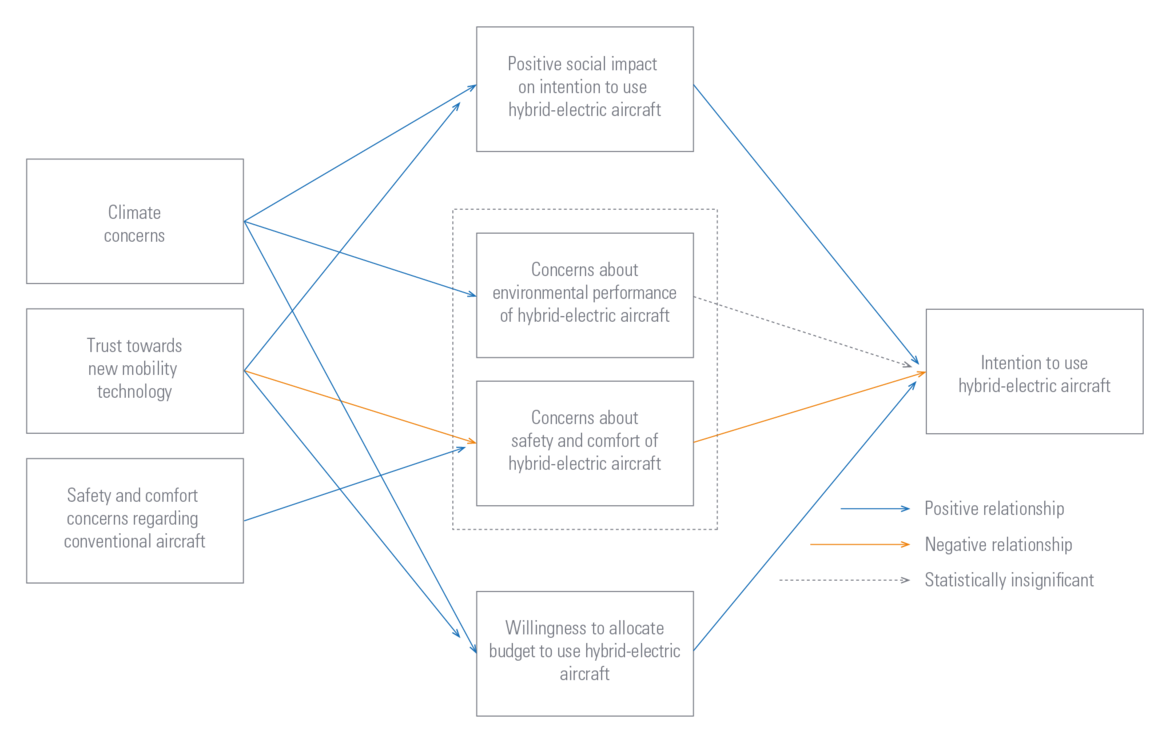The usage of renewable energy, such as electricity and hydrogen, is seen as one option towards climate neutrality of aviation, which requires new aircraft configurations, especially for regional and short-haul applications. To introduce this new type of hybrid-electric aircraft to the market, it is of utmost importance to better understand public acceptance and the factors that might affect the public acceptance towards this new mobility product. An online survey collected a representative sample of more than 3000 German residents who travelled actively within Europe before the start of the COVID-19 pandemic.
The key results are that a large majority (74 %) of the respondents agree that they would consider flying with hybrid-electric aircraft. The majority (77 %) of the respondents who would consider flying with hybrid-electric aircraft envision private travel purposes such for leisure and social activities as main purposes. Among the respondents who would not consider flying with hybrid-electric aircraft, 36 % indicated safety concerns in general, followed by 18 % indicating a lack of trust in regulatory authorities. Regarding the areas of concern, 42 % of the respondents agree that they are concerned about the potential risks of electric propulsion. Slightly less than one-third of the respondents agree that they are concerned about the negative climate impact of electricity and hydrogen production. The regression analysis results show a reduced acceptance intention in case of passengers’ stronger concerns about safety and comfort and an increase in case of stronger climate concerns and general trust towards new mobility technology.
What drives the usage of hybrid-electric aircraft from a user’s perspective?
Passengers’ climate concerns, trust towards new mobility technology, as well as safety and comfort concerns about conventional aircraft may have significant indirect impacts on the intention to accept hybrid-electric aircraft.

The analysis of passenger acceptance as one building block towards a holistic evaluation of electric flying



